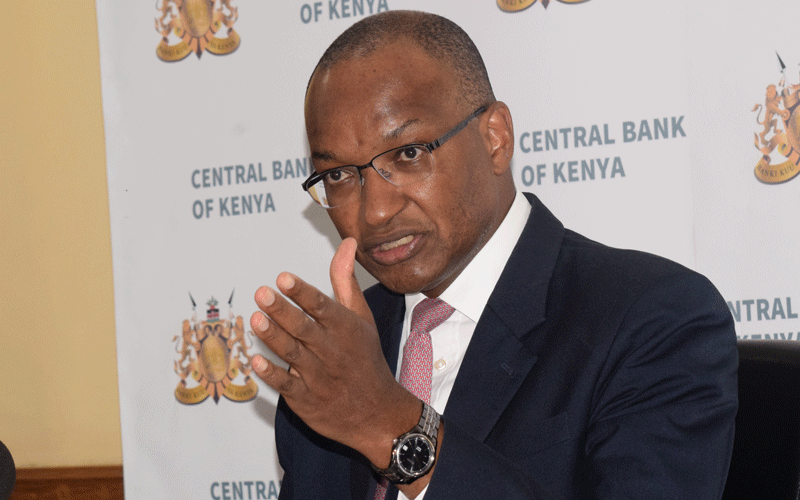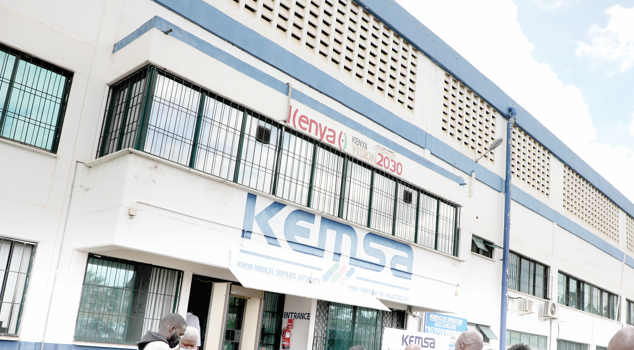Ten ways SMEs lose their punch for business

Small and Medium Enterprises are considered the backbone of the economy because of their ability to quickly generate employment for huge swathes of unskilled labour. But, their capacity is hindered by various reasons, 10 of which the Business Hub discussed with Florence Wanja, Stanbic Bank Kenya’s head of business and commercial clients. Excerpts:
Security or collateral
This is the first requirements banks demand before dishing out money, often in the form of property, which might be problematic to SMEs. Unfortunately, most of those who intend to start small businesses usually lack valuable collateral like a car, a house or even land to take commercial loans, with banks declining to offer them loans as they are tagged risky for lack of security.
Governance structures
Most small traders are informal and are not structured in the way they are running businesses. Because they lack tools to support their competitive survival and growth, they are constantly missing out on providers of risk capital. Similarly, a lack of governance structure diminishes business continuity. Most are one-man shows, where the proprietor does everything. The ability to run an enterprise into continuity is another risk banks will usually shy off. If you drop dead today, then what happens, says Wanja.
Financials
Most SMEs do not have audited records as they typically keep their records in envelopes or on paper. Before lending, banks will demand proper business records, unfortunately, most Kenyan MSMEs do not record business financial transactions or bookkeeping has often led to many Kenyan MSMEs collapsing a few months into the establishment as they are also inhibited from accessing capital from commercial banks.
Skills and experience
Sometimes owners may not have the experience to run their business. A number of investors start businesses for the sake of it, at times, because they have seen their neighbours do it. Some kiosk owners open these establishments simply because they have money to spare, but without the ability or proven record to run establishments, which makes it unsustainable.
Unpreparedness
Before starting a business, there are basic requirements such as access to the market and finances that are needed. Unfortunately, many MSMEs do not factor in this factor, leading to failure. Wanja wonders: how do you make chapatis before establishing a market? Whether requesting a conventional small business loan or a private capital loan, it’s important for small business owners to be prepared with a small business plan, financial statements or projections, bank statements, tax returns, credit reports, and copies of any relevant legal documents. This includes articles of incorporation, leases, contracts, operating licenses or permits among others.
6. Fear of taxation
A number of small businesses are afraid of accessing money from formal structures like commercial banks, instead preferring shylocks or small chamas or informal cooperative societies that are used to pool and invest savings. Mostly, this is for fear of coming under the spotlight of the Kenya Revenue Authority. But Wanja warns that you can only do that for a certain period because at some point you need to grow and this needs more finances.
Cashflow and credit
Because it costs banks the same amount to underwrite both big and small loans, banks prefer to spend money where they can attain the most profit, hence the reason why they favour corporate loans. Having little or no credit history as a start-up company is one of the biggest lending hurdles for small business owners. This is another situation in which private capital loans can be helpful as private lenders are less interested in credit history and more interested in the value of the real estate that would secure the loan.
Increased regulations
Commercial banks have tightened up their requirements and become even more cautious about the risk in their portfolios. Unfortunately, small businesses are riskier than larger businesses, which makes banks think twice before approving someone’s application for a loan.
Slump in community banking
Small businesses have had more funding luck from cooperative societies than commercial banks. However, most of these savings and credit cooperative organisations (SACCOs) are faced with high rates of defaulting on payment of loans by members, experiencing low volume of business and poor financial practices to be able to fully fund small businesses.
Capital and age of a firm
One of the main challenges for a start-up’s life cycle stage is funds mobilisation because they need to overestimate money for the formation of fixed assets and working capital. Research shows that small businesses, especially those younger than 5 years, face lots of hardship and spend lots of money to access external financing from lenders because of information asymmetry among other reasons.










